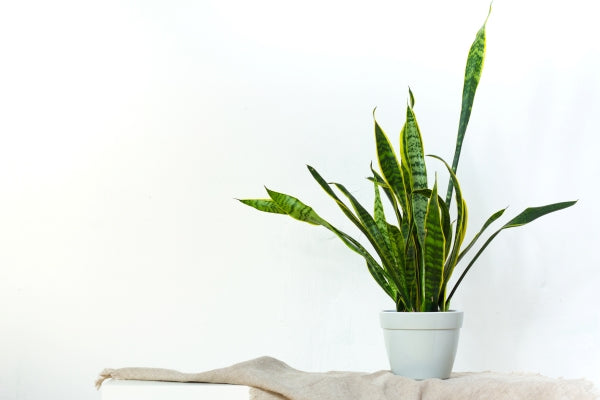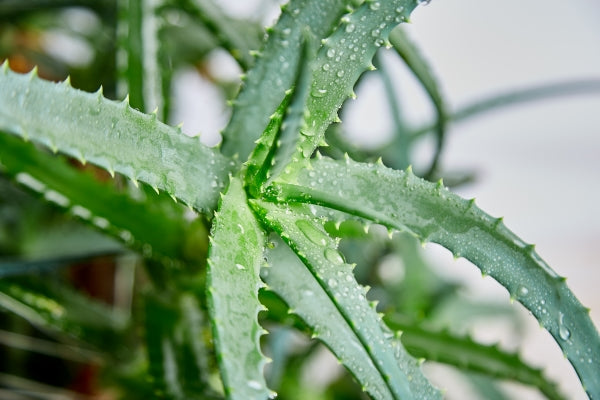10 Popular House Plants for Beginners
Updated: January 28, 2025

If you're new to the world of house plants, or if you're just looking for some ideas on new plants to try, you'll want to check out this list of popular plants for beginners. From easy-to-care-for options like succulents and cacti to low-maintenance plants like spider plants and philodendrons, there's a little something for everyone here. So whether you're a green thumb or just starting, bookmark this page and come back when you need some inspiration.

Reasons to Buy House Plants
-
Improve Air Quality
Plants improve air quality because they release oxygen and absorb carbon dioxide. Some plants, such as spider plants, filter out common pollutants such as benzene, formaldehyde, and trichloroethylene from the air.
-
Boost Mood and Productivity
Plants boost mood and productivity by reducing stress and creating a more positive work environment. They also improve concentration and memory recall.
-
Reduce Stress Levels
Plants reduce stress levels by producing negative ions, which cancel out positive ions. Negative ions are known to improve mood and reduce anxiety. A study published in the Journal of Physiological Anthropology found that plants in your home or office can make you feel more comfortable, soothed, and natural. In the study, people were given two different tasks: repotting a houseplant or completing a short computer-based task. After each task, researchers measured the biological factors associated with stress, including heart rate and blood pressure.
-
Promote Healing
Plants promote healing through their ability to enhance the quality of air and reduce stress levels. They also can absorb sound waves, which can create a calming environment. In addition, studies have also found a connection between indoor plants and mental health, including aiding the healing process for hospital patients. For example, a 2009 study found patients in hospital rooms with plants and flowers had lower blood pressure, higher pain tolerance, lower anxiety, and lower fatigue than patients who stayed in rooms without plants.
-
Increase Sense of Well-Being
Plants increase the sense of well-being by providing a connection to nature.

-
Enhance Your Home's Décor
Plants enhance your home's décor by adding life and color. They can also help to purify the air and make your home feel more welcoming.
Choose the Right Plant for Your Home
Not all plants are created equal. Some plants are better suited for particular environments than others. When choosing a plant for your home, it's essential to consider the following factors:
Lighting
Plants are different from each other. Some prefer partial sun, direct sunlight, or at times indirect sunlight. Be sure to choose a plant that will thrive in the lighting conditions of your home. If you have a bright room, better to get a plant that will thrive in that condition.

Watering
How often you water your plant depends on the plant type and the potting mix you use. Be sure to check the watering requirements of your plant and water accordingly. You can also use a moisture meter or use your finger to sense if your plant’s soil is becoming dry.
Temperature
Most houseplants prefer temperatures between 65 and 75 degrees Fahrenheit. If you have a particularly hot or cold spot in your home, you may need to choose a plant that can tolerate those conditions.
Humidity
Some plants prefer high humidity, while others do better in dry conditions. Again, be sure to choose a plant that will thrive in the humidity conditions of your home.
The Ultimate List of Popular House Plants for Beginners

1. Snake Plant
Resilient and adaptable, the snake plant is a great choice of houseplants for beginners (or anyone who forgets to water their plants). It can survive in various lighting conditions, from low light to bright sunlight, and only needs to be watered every few weeks. Snake plants are one of the famous dozen houseplants named by NASA as potentially providing air-purifying effects in the home, as shown in a 1989 study intended to find ways to detoxify space stations. Not only have they been shown to remove harmful chemicals like benzene and formaldehyde under certain conditions, but they are also said to boost levels of oxygen in your space overnight.

2. Pothos
Another great option for first-time plant parents, pothos are very hardy and can tolerate a wide range of lighting conditions, from low light to bright light. These fast-growing plants are also easy to propagate, so you can quickly fill up your space with them.

3. Philodendron
Philodendrons are another fast-growing plant that is relatively easy to care for. They can tolerate low light conditions and only need to be watered every week or two.
4. Spider Plant
This is a popular houseplant, and for a good reason! They're very easy to care for, tolerant of a wide range of lighting conditions, and produce baby spider plants (called "spiderettes") that can be used to propagate new plants.

5. Aloe Vera
Aloe Vera is a succulent best known for its healing properties, but it also makes a great houseplant. It thrives in bright light and only needs to be watered weekly.
6. Peace Lily
Peace lilies are flowering plant that blooms in the spring and summer. They thrive in low-light conditions and prefer to be kept on the drier side, so they're perfect for beginners who tend to overwater their plants.
7. Rubber Plant
Rubber plants are a type of tropical tree that can grow quite large, but they can also be kept as houseplants. They prefer bright light and moist soil but can adapt to lower light and drier soil conditions.
8. Fern
Ferns are a type of fern that do well in shaded areas with high humidity levels. They prefer to be kept moist, so they're a good choice for beginners who have difficulty keeping their plants watered.
9. Boston Fern
Boston ferns are a type of fern native to the eastern United States. They thrive in bright, indirect light and high humidity levels.

10. Succulents
Succulents are a type of plant that stores water in their leaves, stems, or roots. This allows them to survive in dry or humid environments where most plants quickly die. In addition, succulents are popular indoor plants because they require very little care. However, a few things to keep in mind when growing succulents indoors. First, they prefer bright light but can tolerate low-light conditions. Second, they should be watered about once a week, and the soil should be given enough time to dry out completely between watering. Finally, succulents do not like humid conditions, so they should be kept in a well-ventilated room. With a little care, succulents can make beautiful and low-maintenance indoor plants.
Where to Buy House Plants
Here at Planet Desert, we have the largest selection of extremely high-quality, exotic, and beautiful plants online. Some of our most popular selling plants include succulents, cacti, and air plants. There are other options of places to buy plants, such as nurseries or farmers markets, but our online store is the best option because of the many options available.
How to Take Care of Your Houseplants
Once you've brought your new plants home, it's crucial to know how to take care of them. Here are some tips:
- Light: Most houseplants prefer bright, indirect light. If you're not sure how much light your plant needs, just start with a spot that gets a few hours of sunlight per day and adjusts as needed.
- Water: Water your plants when the soil is dry. How often you need water will depend on the plant, the size of the pot, and the climate you live in.
- Fertilizer: Use a balanced fertilizer once a month during the growing season (spring and summer).
- Pests: Watch for pests such as aphids, mealybugs, and spider mites. These can be controlled with insecticidal soap or other organic pest control products.
- Diseases: Avoid diseases by not overwatering your plants and keeping them in clean pots with well-draining soil. If you notice a disease, try to isolate the affected plant from healthy ones.
Now that you know some of the best houseplants for beginners, where to buy them, and how to take care of them, it's time to get started on your indoor garden!























